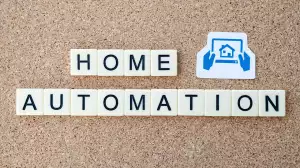Home Smart: Tech That Transforms Your Living Space
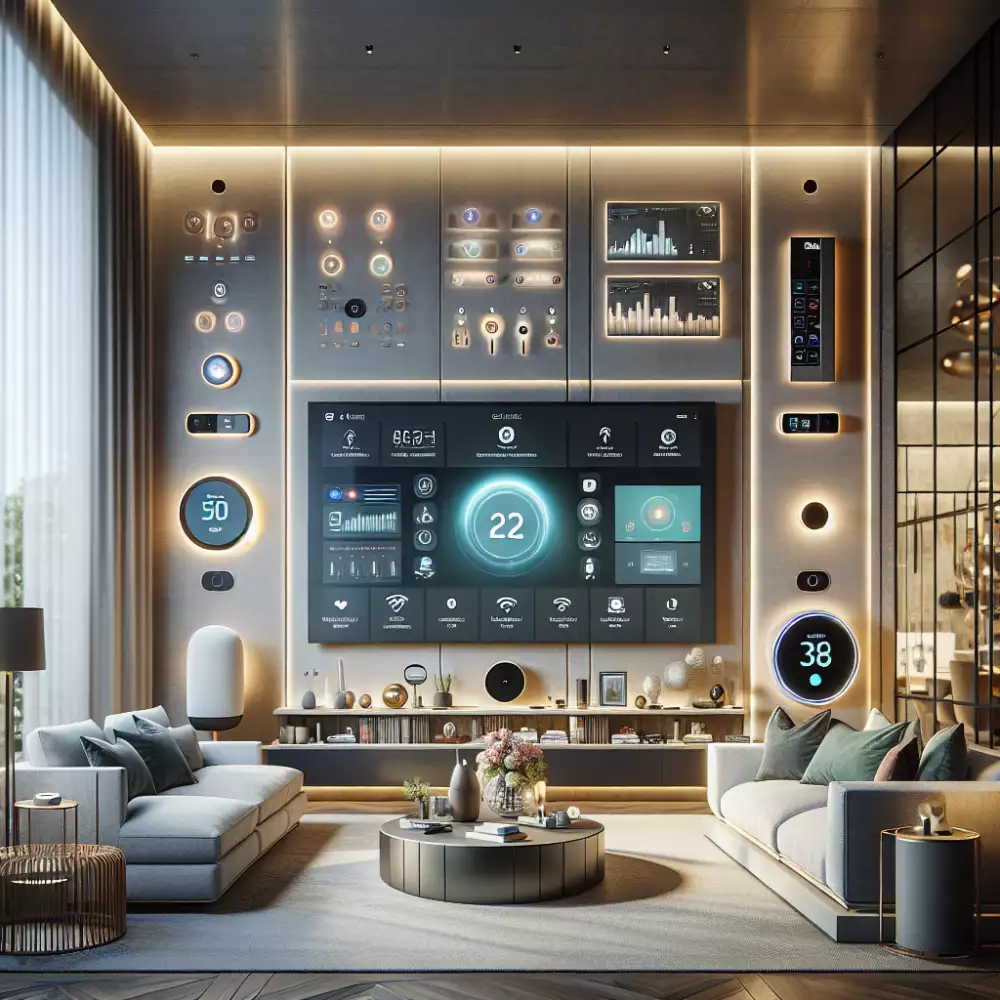
Smart Home Hubs
Smart home hubs are the brains of a connected home, acting as a central control point for all your smart devices. They bring together various gadgets, appliances, and systems, allowing them to communicate and work in sync. Imagine controlling your lights, thermostat, security cameras, and even your coffee maker with a single app or voice command – that's the power of a smart home hub.
These hubs come in different shapes and sizes, from compact voice assistants like Amazon Echo and Google Nest Hub to dedicated hubs like Samsung SmartThings and Hubitat Elevation. The best choice for you depends on your needs and the ecosystem you prefer.
For instance, if you're heavily invested in the Amazon ecosystem, an Echo Show might be a natural fit. It seamlessly integrates with Alexa-compatible devices and offers voice control, video calls, and even smart home security features. On the other hand, if you have a mix of devices from different brands, a platform-agnostic hub like SmartThings or Hubitat might be a better option, offering broader compatibility and customization options.
When choosing a smart home hub, consider factors like ease of use, compatibility with your existing devices, privacy and security features, and of course, your budget. Research different options, read reviews, and compare features to find the perfect hub that transforms your house into a truly smart and connected home.
Smart Lighting Systems
Smart lighting systems are transforming how we illuminate and interact with our homes. Gone are the days of simple on/off switches. With smart lighting, you can control your lights using your smartphone, voice commands, or even set schedules to automate your lighting. Imagine waking up to gradually brightening lights, simulating a natural sunrise, or having your lights automatically turn off when you leave the house.
Smart lighting goes beyond just convenience. Many systems offer energy-saving features like dimming capabilities and occupancy sensors that turn off lights when rooms are empty. You can also customize your lighting with various colors and temperatures, creating the perfect ambiance for any occasion. Whether you want a cozy, warm white for movie night or a bright, cool white for working from home, smart lighting provides endless possibilities.
Some popular smart lighting options include smart bulbs that can be directly screwed into existing fixtures, smart switches that replace traditional light switches, and smart lighting strips that offer versatile lighting solutions for entertainment areas or accent lighting. Integration with other smart home devices is another significant advantage. For example, you can link your smart lights to your security system to deter intruders or have them work in conjunction with your smart thermostat to optimize energy efficiency.
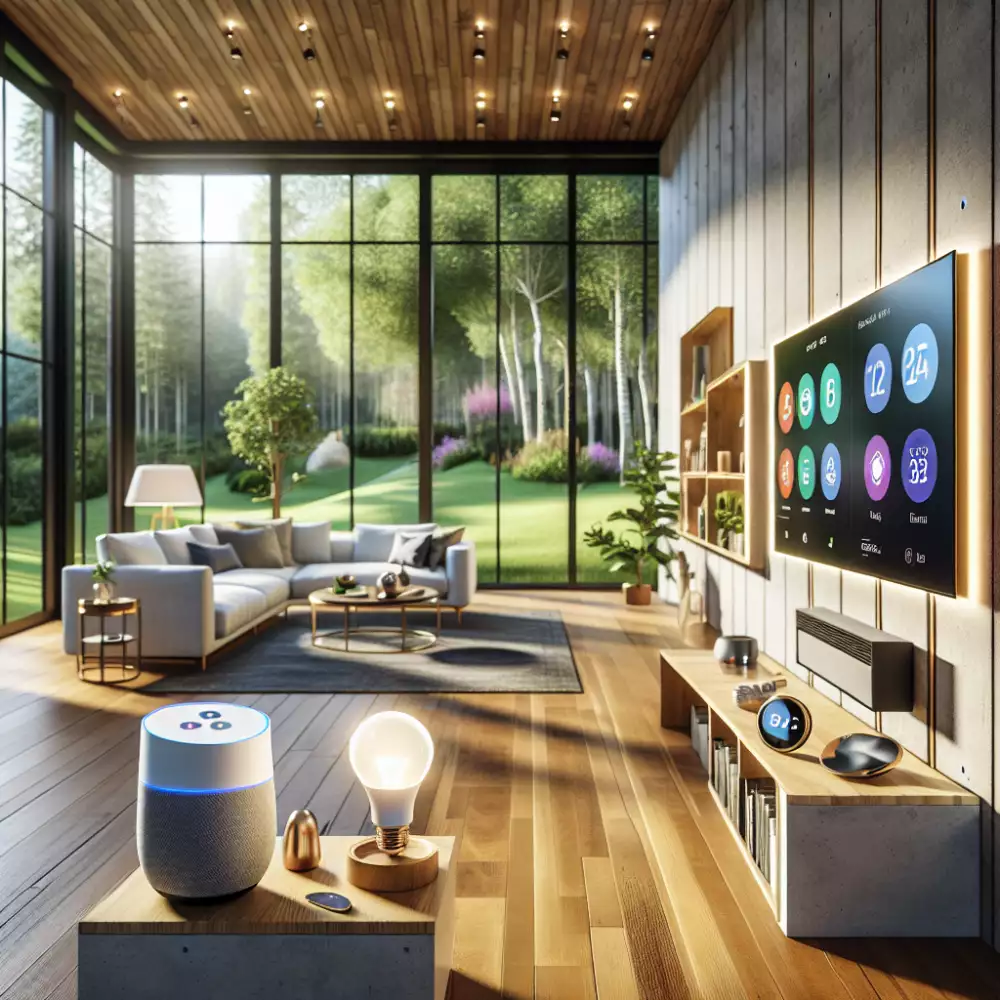
Smart Thermostats
Smart thermostats are essential for any smart home, offering both comfort and energy efficiency. Unlike traditional thermostats, smart thermostats learn your habits and preferences, automatically adjusting the temperature for optimal comfort and energy savings. Imagine waking up to a perfectly warmed house on a chilly morning or coming home to a cool and comfortable environment after a long day.
Smart thermostats can be controlled remotely using your smartphone or voice commands via virtual assistants like Alexa or Google Assistant. This allows you to adjust the temperature from anywhere, ensuring your home is always at the perfect temperature when you arrive. Many smart thermostats offer features like geofencing, which uses your phone's location to determine when you're away and automatically adjusts the temperature to save energy.
You can also track your energy usage and identify areas for improvement. Some models provide detailed reports and insights into your heating and cooling patterns, empowering you to make informed decisions about your energy consumption. By optimizing your HVAC system's efficiency, smart thermostats can help you save money on your energy bills over time.
When choosing a smart thermostat, consider compatibility with your existing HVAC system, desired features like voice control or geofencing, and ease of installation and use. With various options available, you can find the perfect smart thermostat to enhance your smart home experience and enjoy a more comfortable and energy-efficient living environment.
Smart Security Systems
Smart home technology has revolutionized many aspects of our lives, and home security is no exception. Smart security systems offer homeowners advanced features and peace of mind that traditional systems can't match. One of the key benefits of smart security systems is their remote monitoring capabilities. With a smartphone app, you can keep tabs on your home from anywhere in the world. Receive instant notifications about unusual activity, such as door openings or motion detected in your living room. Smart security systems often integrate seamlessly with other smart home devices. For instance, you can connect your security system to your smart lighting to have your lights automatically turn on if motion is detected at night, deterring potential intruders.
Smart doorbells are a popular component of many smart security systems. These devices provide an extra layer of security by allowing you to see and speak to visitors at your door, even when you're not home. Some smart doorbells even feature facial recognition technology, so you can be alerted when familiar faces arrive. Another advantage of smart security systems is their potential for automation. You can create custom schedules and rules for your system. For example, you can set your system to automatically arm itself when you leave for work and disarm when you return.

When choosing a smart security system, consider your individual needs and preferences. Some systems offer professional monitoring services, where a security company monitors your home 24/7 and contacts emergency services if needed. Others allow for self-monitoring, giving you full control over your system. In conclusion, smart security systems provide homeowners with a comprehensive and convenient way to protect their homes and loved ones. With their remote monitoring capabilities, integration with other smart home devices, and automation features, these systems offer a level of security and peace of mind that was previously unimaginable.
Smart Smoke/CO Detectors
Smart smoke and carbon monoxide (CO) detectors are essential safety devices for any smart home. Unlike traditional detectors that only sound an alarm, smart detectors offer advanced features and connectivity. These detectors connect to your home's Wi-Fi network, enabling you to receive real-time alerts on your smartphone, no matter where you are. This means you'll be notified of potential dangers even when you're away from home.
Many smart smoke/CO detectors feature photoelectric sensors that detect slow-burning fires and electrochemical sensors that detect fast-burning fires. They can also differentiate between smoke and steam, reducing false alarms. Some models even integrate with other smart home devices. For example, they can trigger your smart lights to turn on, making it easier to evacuate in case of an emergency.
When choosing smart smoke/CO detectors, consider factors like the sensor types, connectivity options, battery backup, and compatibility with other smart home ecosystems. Look for detectors certified by reputable organizations such as UL or ETL to ensure they meet safety standards.
Smart Appliances
Smart appliances are transforming our homes into interactive and efficient living spaces. These appliances leverage connectivity and intelligent technology to simplify daily tasks, enhance comfort, and provide valuable insights into our energy consumption. From refrigerators that can order groceries to washing machines that optimize cycles based on load size, smart appliances offer a glimpse into the future of home living.
One of the key benefits of smart appliances is their ability to automate tasks. Imagine a robot vacuum cleaner that cleans your floors while you are at work or a smart oven that preheats your dinner on your way home. This automation not only saves time but also provides convenience and peace of mind.
Smart appliances also offer enhanced control and customization. With mobile apps, homeowners can remotely monitor and control their appliances from anywhere. You can adjust the temperature of your smart thermostat, start a load of laundry, or even preheat your oven, all with a few taps on your smartphone. This level of control empowers homeowners to manage their homes more efficiently and effectively.
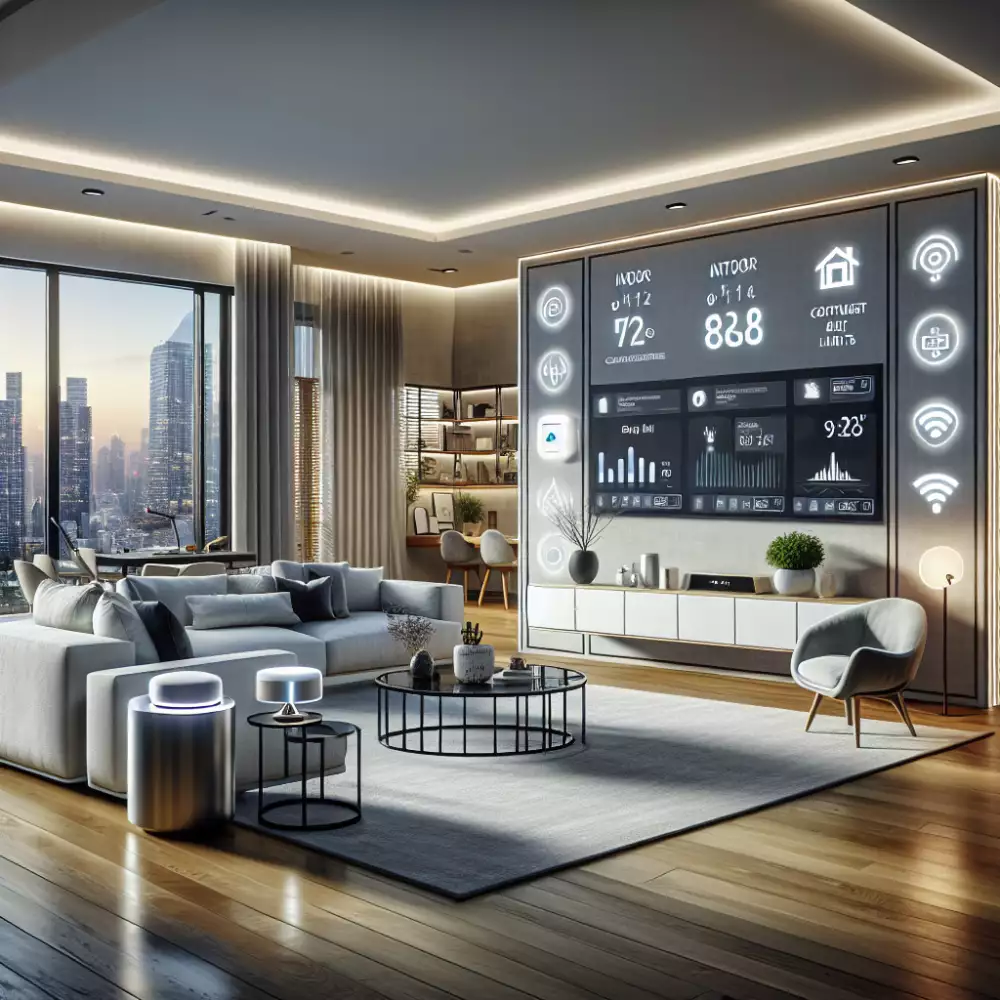
Energy efficiency is another significant advantage of smart appliances. By monitoring usage patterns and optimizing performance, these appliances can help reduce energy consumption and lower utility bills. For instance, smart thermostats learn your temperature preferences and adjust heating and cooling accordingly, while smart refrigerators optimize cooling cycles based on usage patterns.
Furthermore, smart appliances offer valuable insights into our daily routines and energy consumption habits. By tracking usage data, these appliances provide homeowners with actionable information that can help them make more informed decisions about their energy usage. This data can be used to identify areas for improvement, reduce waste, and ultimately save money.
However, it is important to note that smart appliances also come with certain considerations. Privacy concerns are paramount, as these appliances collect data about our daily routines. It is crucial to choose reputable brands with strong privacy policies and to understand the types of data being collected and how they are being used.
Interoperability is another challenge in the smart appliance market. With various manufacturers using different connectivity protocols, ensuring seamless communication between devices can be complex. Homeowners should consider investing in appliances that are compatible with popular smart home ecosystems like Amazon Alexa, Google Assistant, or Apple HomeKit to ensure interoperability.
As technology continues to evolve, we can expect even more innovative and sophisticated smart appliances in the future. From self-cleaning ovens to refrigerators that can suggest recipes based on available ingredients, the possibilities are endless. Smart appliances are revolutionizing the way we live, making our homes more comfortable, efficient, and connected than ever before.
Smart Door Locks
Smart door locks are a great way to add convenience and security to your home. With a smart lock, you can lock and unlock your door using your smartphone, a keypad, or even your voice. Some smart locks also allow you to create temporary keys for guests or service workers, and you can receive notifications whenever someone locks or unlocks your door.
There are many different types of smart locks available, so you can choose one that fits your needs and budget. Some smart locks replace your existing deadbolt, while others can be installed over your existing doorknob. There are also smart locks that offer different features, such as fingerprint scanning, tamper alarms, and integration with other smart home devices.
If you are considering adding a smart lock to your home, there are a few things you should keep in mind. First, you will need to make sure that your door is compatible with the smart lock you choose. Second, you will need to choose a smart lock that offers the features that are important to you. Finally, you should read reviews of different smart locks before making a purchase.
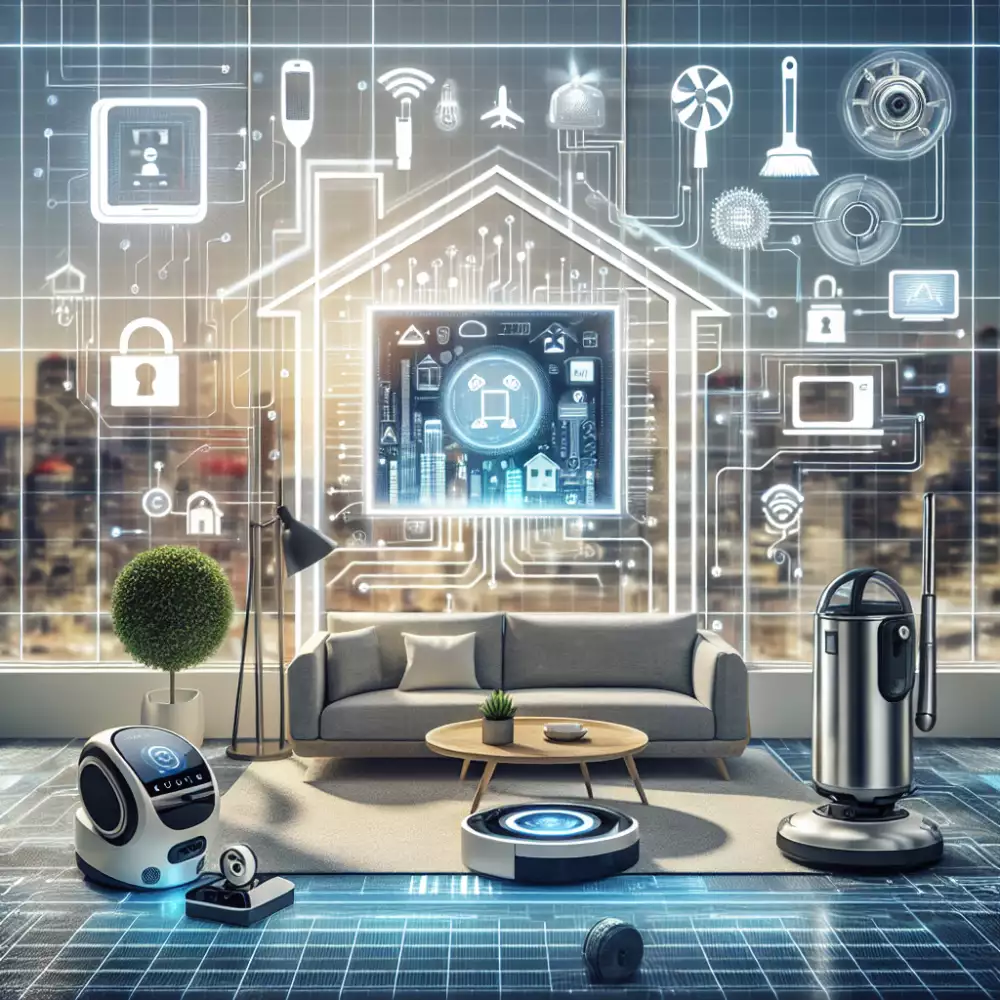
Smart door locks can provide a number of benefits for homeowners. They can make it easier to manage access to your home, and they can also provide peace of mind by allowing you to monitor who is coming and going. If you are looking for a way to make your home more secure and convenient, a smart door lock is a great option.
Smart Home Entertainment
Smart home entertainment has moved far beyond just a large-screen TV with surround sound. Today, it's about seamlessly integrating technology to create immersive and personalized experiences. Imagine a Friday night where your lights dim automatically as your favorite movie starts streaming on your smart TV, all while the thermostat adjusts for the perfect movie-watching temperature. That's the power of a connected smart home entertainment system.
At the heart of this revolution are smart speakers with voice assistants like Amazon Alexa or Google Assistant. These devices act as the central control hub for your entertainment. You can effortlessly play music, podcasts, or audiobooks across multiple rooms, all with simple voice commands. Want to watch the latest blockbuster? Just ask your voice assistant to find it on your preferred streaming service.
But it doesn't stop there. Smart lighting can dynamically adjust to match the mood of your movie or music, while motorized blinds can create a true home theater atmosphere. And with multi-room audio systems, you can enjoy your favorite tunes throughout your house, with the music seamlessly following you from room to room.
The beauty of smart home entertainment lies in its customization. You can set up personalized "scenes" for different occasions. For a movie night, a single command could dim the lights, lower the blinds, and start the film. Or, create a "party scene" that activates upbeat music, colorful lighting, and even adjusts your smart thermostat for optimal comfort.
The future of smart home entertainment is all about creating personalized and immersive experiences. With the continuous development of new technologies and devices, the possibilities for creating the ultimate home entertainment setup are limitless.
Voice Assistants
Voice assistants are rapidly becoming a staple in smart homes. Devices like Amazon Echo with Alexa, Google Home with Google Assistant, and Apple HomePod with Siri allow you to control various aspects of your home using just your voice. Imagine turning on the lights, adjusting the thermostat, playing music, or even getting recipe suggestions without lifting a finger. That's the power of voice assistants in a smart home.
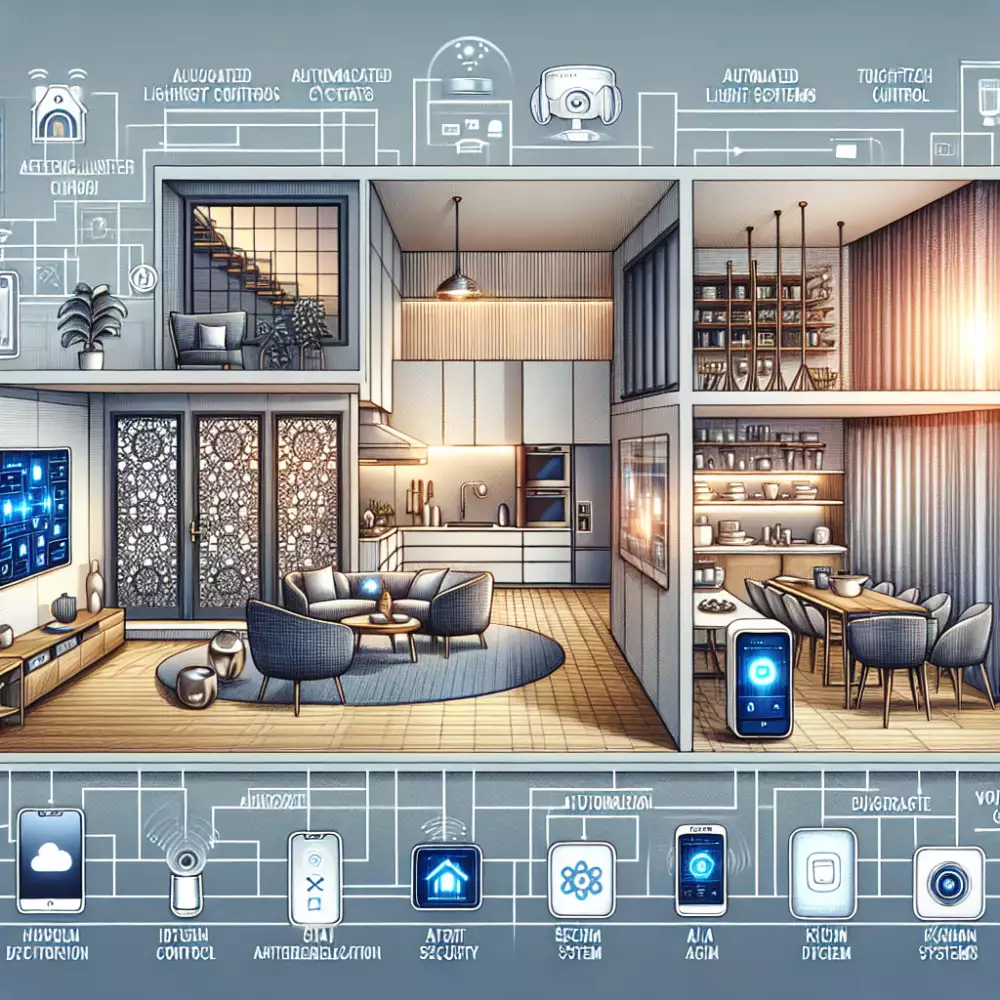
These intelligent assistants learn your preferences and routines over time, providing a personalized experience. They act as the central hub for all your smart home devices, enabling seamless integration and control. Whether you want to dim the lights for a movie night or set a morning routine that brews your coffee and reads you the news, voice assistants make it effortless.
Beyond convenience, voice assistants enhance accessibility for individuals with mobility limitations, making it easier for them to interact with their surroundings. The future of smart homes is undeniably intertwined with voice control, making our lives more comfortable, efficient, and enjoyable.
Smart Home Networks
Smart home networks are the backbone of any modern, automated house. They connect all your smart devices, from smart lights and thermostats to security cameras and entertainment systems, allowing them to communicate and work together seamlessly. This interconnectedness is what truly brings the "smart" in a smart home to life.
Imagine controlling your home's lighting, temperature, and even appliances from your smartphone, whether you're at home or miles away. Picture a scenario where your security system detects suspicious activity and automatically alerts you and the authorities. These are just a few examples of what smart home networks can enable.
There are various technologies powering these networks, with Wi-Fi being the most common due to its widespread availability and ease of use. Other options include Zigbee and Z-Wave, known for their low power consumption and ideal for battery-operated devices like sensors. For larger homes or those requiring more robust connectivity, a wired Ethernet connection might be preferred, offering faster speeds and greater reliability.
Choosing the right smart home hub is crucial in managing your network effectively. This central control point acts as the brain of your smart home, allowing you to control and automate various devices and systems from a single interface. Popular options include Amazon Echo with Alexa, Google Home with Google Assistant, and Apple HomeKit with Siri, each offering its own strengths and ecosystem of compatible devices.
Building a smart home network requires careful planning and consideration. You'll need to assess your needs, budget, and desired level of automation. Start with a few essential devices and gradually expand your network as you become more comfortable with the technology. Remember, a smart home should make your life easier, more comfortable, and secure.
Benefits of Smart Homes
Smart homes offer a wide range of benefits that can significantly enhance our lives. One of the primary advantages is increased comfort and convenience. With smart home technology, you can control various aspects of your home, such as lighting, temperature, and appliances, with just a few taps on your smartphone or voice commands. Imagine adjusting the thermostat or turning off the lights without leaving your cozy bed.
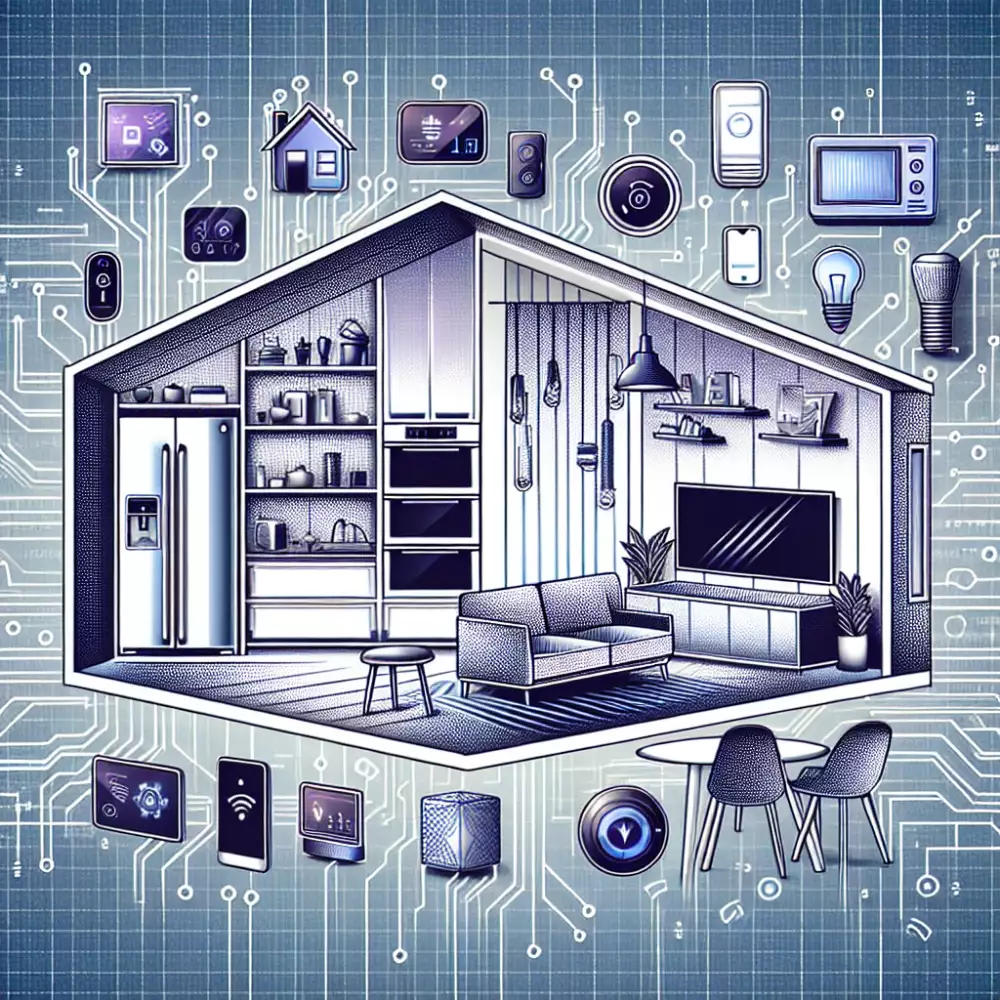
| Feature | Amazon Alexa | Google Assistant | Apple HomeKit |
|---|---|---|---|
| Voice Control | Yes | Yes | Yes |
| Device Compatibility | 100,000+ devices | 50,000+ devices | Limited, but growing |
| Smart Home Routines | Yes, highly customizable | Yes, customizable | Yes, but less customizable |
| Music Streaming Services | Amazon Music, Spotify, Apple Music, etc. | YouTube Music, Spotify, Deezer, etc. | Apple Music, other services limited |
| Privacy Focus | Offers microphone mute button and data deletion options | Offers privacy controls and data deletion options | Strong emphasis on user privacy and data security |
Smart homes also offer enhanced security features. Smart security systems can include connected cameras, motion sensors, and smart locks, providing real-time monitoring and alerts, allowing you to keep a watchful eye on your property from anywhere in the world. These systems can deter burglars and provide valuable evidence in case of an incident.
Another significant benefit is energy efficiency. Smart thermostats and lighting systems learn your preferences and adjust automatically, reducing energy consumption and lowering utility bills. Smart appliances can also optimize their performance based on usage patterns, further contributing to energy savings.
Moreover, smart homes offer increased accessibility and independence for individuals with disabilities or mobility issues. Voice control features and smart home automation can empower them to perform everyday tasks with ease, enhancing their quality of life.
Furthermore, smart homes provide peace of mind. With real-time monitoring and alerts, you can stay informed about what's happening at home, whether it's a security breach, a water leak, or a smoke alarm. This awareness allows you to take immediate action, preventing potential disasters and ensuring the safety of your loved ones and belongings.
Privacy Concerns
Smart home technology offers convenience and energy efficiency but raises significant privacy concerns. Smart devices collect vast amounts of data about our daily lives, from our energy consumption habits to our movements and conversations. This data is often stored on company servers, raising concerns about who has access to it and how it is used.
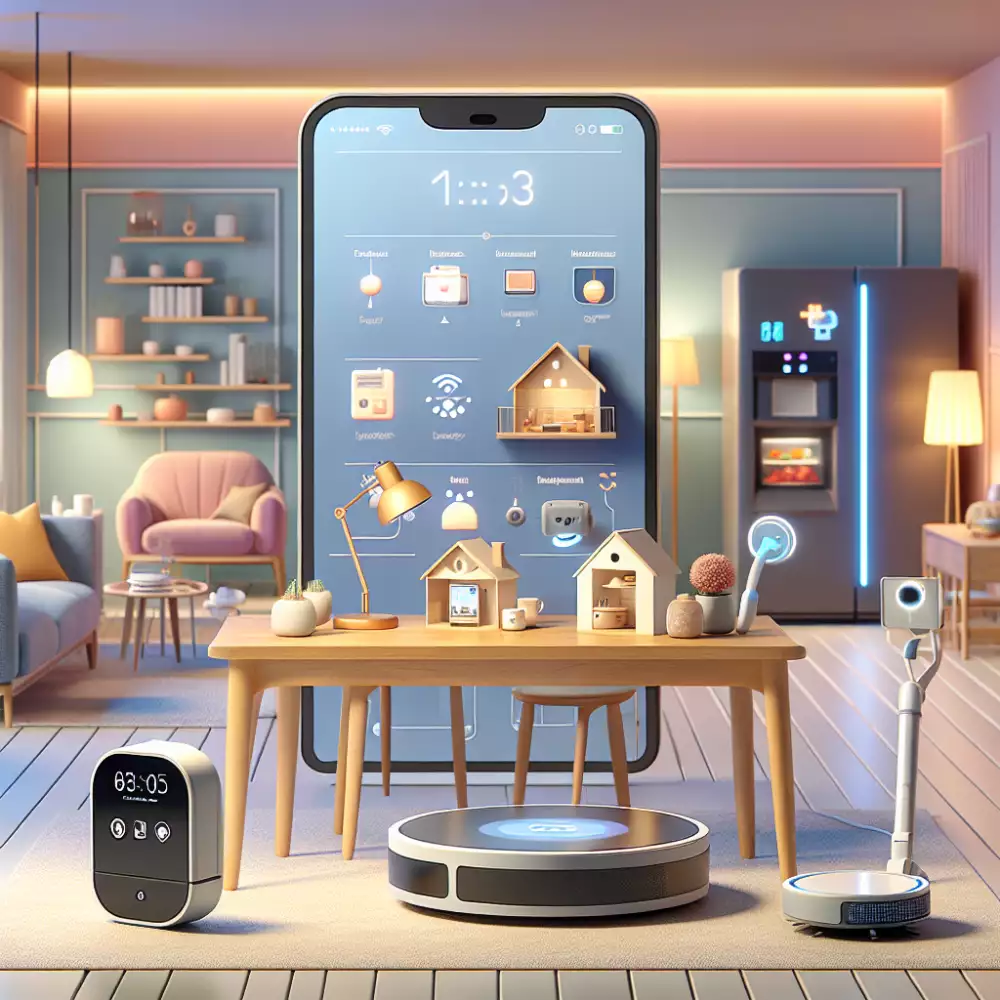
For example, smart speakers with voice assistants are always listening for their wake word, which means they may inadvertently record private conversations. Similarly, security cameras and smart doorbells capture footage of our homes and neighborhoods, potentially capturing sensitive information. While many companies claim to anonymize or aggregate this data, security breaches and data leaks are a constant threat.
Furthermore, the increasing integration of smart home devices with third-party apps and services expands the potential for data sharing and misuse. Users should carefully review the privacy policies of both device manufacturers and app developers to understand how their data is collected, stored, and shared. The lack of transparency and control over personal data in the smart home ecosystem remains a significant concern for many users.
Future of Smart Homes
The future of smart homes is brimming with exciting possibilities. Imagine a home that anticipates your needs, seamlessly adapting to your preferences and lifestyle. As technology rapidly advances, this vision is quickly becoming a reality.
Artificial intelligence will play a pivotal role, enabling homes to learn your routines and automate tasks with increasing sophistication. Imagine your home proactively adjusting the lighting, temperature, and even starting your coffee based on your predicted schedule.
Energy efficiency will be another key focus, with smart homes optimizing energy consumption based on occupancy patterns and real-time energy pricing. Solar panels and smart grids will further reduce our reliance on traditional energy sources.
Smart home security will reach new heights, with advanced facial recognition systems, predictive security alerts, and seamless integration with emergency services.
The line between the physical and digital worlds will continue to blur, with augmented reality and virtual reality transforming how we interact with our homes. Imagine using AR to visualize different furniture arrangements or VR to experience a virtual tour of your dream home before it's even built.
The future of smart homes is about creating personalized and intuitive living spaces that enhance our comfort, security, and overall well-being. As technology continues its rapid evolution, we can expect even more innovative and transformative smart home experiences in the years to come.
Publikováno: 20. 08. 2024
Kategorie: Technology



